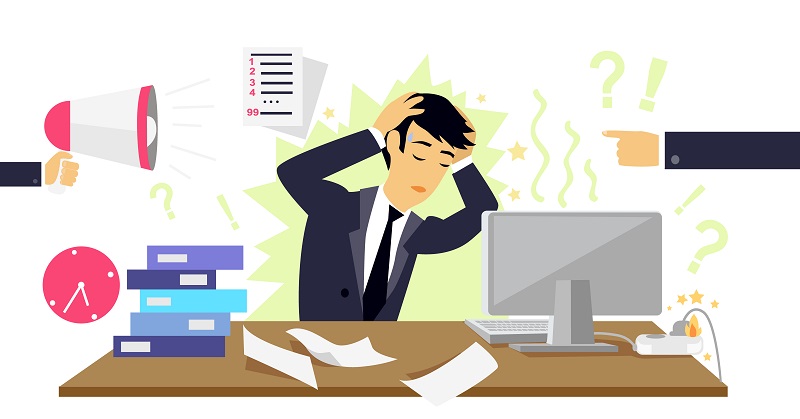Sometimes, life can feel like an endless loop of recurring challenges and difficulties, and that’s not entirely abnormal. Issues like relationships, money and a variety of troubling situations are a few common things, as noted by Healthline, that we all find ourselves stressed out by occasionally. But if you’re finding that deja-vu feeling has been popping up more than normal, you’ve come to the right place.
Today I’d like to share with you a couple of reasons many people find themselves plagued by familiar problems time and time again, even after they’ve sworn they’ve been resolved.
Hopefully the knowledge here will lead to reduced frustration and you’ll find yourself feeling a lot better about bringing the loop of challenges to an end.
Reason #1 – You Complain About The Problem Too Much.

There are times when speaking about our problems and our intent to solve them may actually hold us back from succeeding. When we excessively over-communicate our desires, it can take the place of action. It tricks your brain into thinking you’re doing something about it and so you’re not as motivated to actually get up and start moving.
We’ve all got that one friend with which we love to mope and talk about how determined we are to make changes. But friendships that are based on misery drag us down.
The article “Why Talking About Our Problems Is Our Greatest Addiction” explores this further, and I definitely recommend giving it a read.
Reason #2 – We Act (Or Don’t Act) Out Of Fear.

Impulse decisions are bad. The Calm Clinic refers to them as both a cause and symptom of anxiety. Often, impulse decisions are made out of fear. We attach so much importance to each moment, each decision, and we assume that if we don’t act right now, things will be absolutely horrible.
It’s not hard to see how this can quickly turn into something very negative. Imagine you have a penchant for shopping. Impulsivity and fear could very well be manifested by your reasoning that if you don’t buy that item right now, you’ll regret it later when the price goes up or it’s no longer available.
This can lead to recurring financial problems, which can also in turn lead to problems with your partner.
Let’s imagine another scenario.
Say you are terrified of admitting you have a problem with drinking too much alcohol. You try to justify and get around it by not drinking for a day or two, but then you’re right back at it, spending way too much money and time at the bar. Fear in this case is part of addictive thinking, as well as the belief that everything is under control, even though an addict often can’t stop the pattern without help.
Overcoming fear is no easy task but I highly recommend reading this article from David Wolfe about where fear comes from and what to do about it.
What do you think of these two points? Do they resonate with you and your situation? Have you overcome these two challenges and found yourself in a better place?
Let us know in the comments and be sure to share this post with someone who needs it.
[h/t: www.thespiritscience.net]


